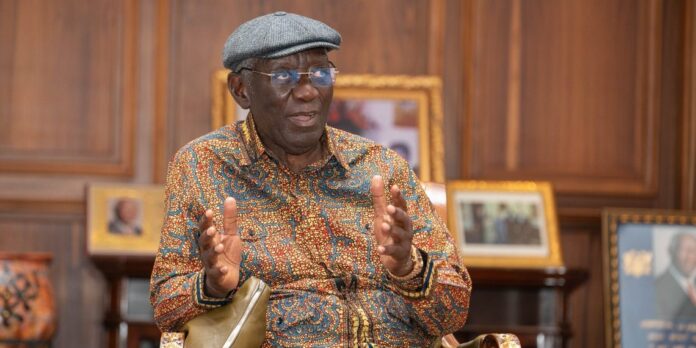|
Getting your Trinity Audio player ready...
|
Former President John Agyekum Kufuor has called on Ghana’s youth to actively participate in the upcoming December election to foster the nation’s development and progress.
Kufuor emphasized that youth involvement in the electoral process is crucial for shaping Ghana’s future. During the launch of the Kufuor Scholars Foundation’s voter campaign, aimed at increasing youth participation in the December polls, he remarked that the youth must view themselves as pivotal influencers.
“Ghana alone has about 30 million citizens and with your learning and mature brain power throughout our societies, if you would do what you should do as responsible citizens to try to give the nation good leadership, inclusive leadership, if you would do that, then I tell you, within a few years you will see Ghana turning around to really be coming up, to be emulated on the continent of Africa to better the lot of humanity,” Kufuor stated.
In the 2020 elections, over 17 million Ghanaians registered to vote, but only 13 million participated. Voter apathy, economic challenges, and concerns about governance have been cited as reasons for the low turnout.
The upcoming December 7 election faces a critical situation, as a survey by the Kufuor Scholars Foundation indicated that 43 percent of every 1,000 Ghanaians do not plan to vote. In response to this urgency, the Kufuor Scholars Programme, in collaboration with the National Commission for Civic Education, has launched a voter campaign to boost education and awareness about the importance of voting.
At the event, Kufuor highlighted the potential power of the youth, saying, “Having over 70% of the youth population means that, you will be unstoppable if you become committed to doing what is right.”
The launch was attended by several notable figures, including Prof. Agyemang Baffuor Duah, CEO of JAK Foundation; H.E. Harriet Thompson, British High Commissioner to Ghana; Dr. Pascal Brenya, KSP Coordinator; Nana Ama Oppong Duah, Policy Advisor at the JAK Foundation; and Irene Horsham (Esq), Rector of Mountcrest University.





